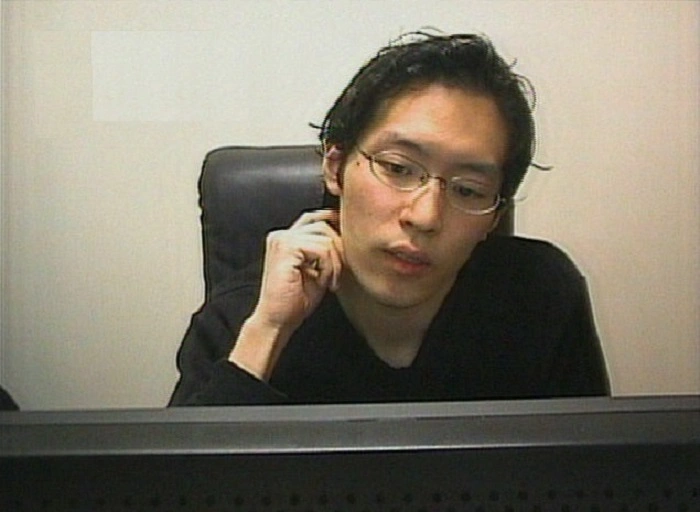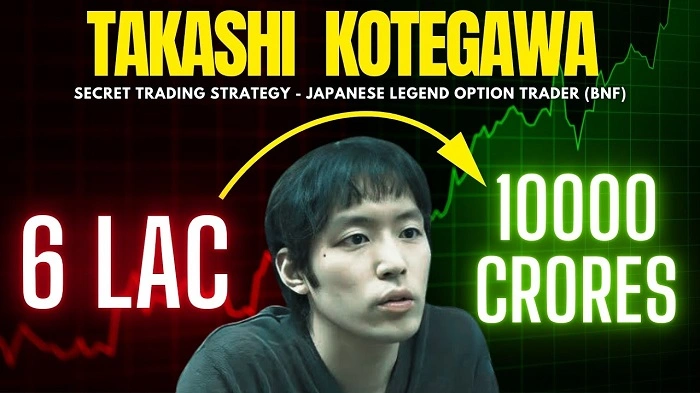Picture this: You’re 20-something, still figuring out life, and you invest your modest savings of ¥1.6 million (about $13,000) in the stock market. Fast forward a few years, and you’re sitting on billions of yen — not from winning the lottery, but from smart, strategic moves made from a quiet apartment in Tokyo.
Meet Takashi Kotegawa, also known as BNF, Japan’s most mysterious trading genius. If you’re wondering how someone could possibly turn a few thousand dollars into a multi-million dollar empire, you’re in for a treat. Let’s explore the wild (but true) story of Takashi Kotegawa’s net worth and how he became the legend he is today.
Contents
- 1 💡 Quick Peek: Just How Rich Is Takashi Kotegawa?
- 2 🧑💻 From Nerd to Net Worth: The Beginning Nobody Saw Coming
- 3 📈 Turning Point: The Livedoor Shock That Shocked Everyone but Him
- 4 🧠 What’s Takashi Kotegawa Secret? (And Can You Copy It?)
- 5 👨👩👧👦 Why Takashi Kotegawa Story Matters to All of Us
- 6 ❓ You Might Be Wondering
- 7 📸 Suggested Visual Elements
- 8 Frequently Asked Questions (FAQs) About Takashi Kotegawa Net Worth
💡 Quick Peek: Just How Rich Is Takashi Kotegawa?
Before we get into the details, here’s a quick breakdown of where Kotegawa stands today:
| 🔍 Category | 💰 Details |
|---|---|
| Name | Takashi Kotegawa (a.k.a. BNF) |
| Starting Capital | ¥1.6 million (~$13,000) |
| Estimated Net Worth (2025) | ¥25–30 billion (~$160–200 million) |
| Main Income Source | Day Trading |
| Lifestyle | Humble, minimalist |
So yes, the guy next door could secretly be a billionaire — if that guy is Kotegawa.
🧑💻 From Nerd to Net Worth: The Beginning Nobody Saw Coming
Let’s be real — Kotegawa was never your typical finance guy. He wasn’t the type to show off flashy suits, throw parties on yachts, or preach get-rich-quick schemes. Instead, he was a quiet student, more interested in computer screens than social scenes.
He stumbled into trading because, like many of us, he wanted financial freedom. Only difference? He nailed it.
“I didn’t aim to be rich. I just didn’t want to lose.” – Kotegawa, in one of his rare forum posts.
Talk about humble goals turning into insane reality!
📈 Turning Point: The Livedoor Shock That Shocked Everyone but Him
In 2005, when the Japanese market was reeling from the Livedoor scandal, most traders were panicking. But Kotegawa? He saw opportunity in the chaos — the kind of cool, calculated vision that made his fortune skyrocket overnight.
He scooped up discounted stocks while others were jumping ship. Result? His account multiplied like crazy.
Let’s break that down in a timeline:
| 🗓️ Year | 🚀 Milestone | 💸 Wealth Estimate |
|---|---|---|
| 2000 | Started with ¥1.6 million | ~$13,000 |
| 2005 | Livedoor crash, seized market opportunity | |
| 2008 | Rumors of 10 billion yen net worth emerge | ~$90 million |
| 2025 | Conservative estimates put him over ¥30 billion | ~$200 million+ |
🧠 What’s Takashi Kotegawa Secret? (And Can You Copy It?)
You might be thinking: “Alright, how the heck did he do it?” Good news — we’ve studied his style, and here’s what made his strategy different (and successful):
🔍 He Kept It Simple
Kotegawa didn’t mess with complicated options or high-leverage nonsense. He stuck to plain old stocks and made his moves based on patterns and price behaviors, not hype.
🧘♂️ Emotions? Nah, He Left Those at the Door
Most of us panic-sell when a stock dips. Kotegawa? He’s cool as a cucumber. He once held onto a tanking stock that everyone abandoned, only to sell it later at a tidy profit.
Tip: If you’re serious about trading, practice emotional discipline like a monk.
💼 Takashi Kotegawa Didn’t Blow His Wealth on Bling
Want to know the craziest part? Despite his billions, Kotegawa still lives modestly. No Lamborghini, no Instagram flexing. He reportedly rides a bicycle to work. Billionaire by numbers, minimalist by heart.
👨👩👧👦 Why Takashi Kotegawa Story Matters to All of Us
Even if you’re not into trading, Kotegawa’s journey says a lot:
- Starting small is okay.
- Risk can pay off — if managed wisely.
- You don’t need to be flashy to be rich.
- Sticking to your own game plan can beat the odds.
He’s a living example of how you can achieve massive wealth without shortcuts, fake gurus, or shady deals.
❓ You Might Be Wondering
👉 Is Takashi Kotegawa still trading?
Sort of! He’s slowed down a bit but is now focused on long-term investing and real estate. Word is, he owns multiple buildings in Tokyo!
👉 Why doesn’t he talk to the media?
He values privacy. In the age of oversharing, his silence only adds to his mystique — and honestly, it’s kind of refreshing.
👉 What’s his biggest financial move?
Buying real estate outright in Tokyo, including a building once listed at ¥4 billion. Now that’s flexing without showing off.
📸 Suggested Visual Elements
To really bring this article to life, here are a few visual ideas:
- Infographic Timeline of Kotegawa’s trading milestones
- Side-by-side table of his net worth progression
- A cartoon-style sketch of Kotegawa riding a bicycle next to a skyscraper he owns
- Comparison chart: Kotegawa vs. other self-made billionaires
These visuals will not only break up the text but make the story pop for visual learners.
Takashi Kotegawa’s net worth isn’t just a number — it’s a symbol of what’s possible when discipline, intelligence, and humility come together. While most headlines chase influencers and crypto bros, Kotegawa reminds us that quiet success is still very much a thing.
So, whether you’re a trader, dreamer, or just someone trying to get their money right, remember: the next Takashi Kotegawa could be… you.
Frequently Asked Questions (FAQs) About Takashi Kotegawa Net Worth
How did Takashi Kotegawa become rich?
By day trading Japanese stocks with strict risk management and deep market insight.
What is his estimated net worth in 2025?
As of 2025, estimates place it between ¥25–30 billion (~$160–200 million).
Is Kotegawa still active in trading?
He reportedly slowed down his trading activity and now focuses more on long-term investments.
Does he give interviews or financial advice?
Rarely. He is known for being highly private and rarely makes public appearances.







